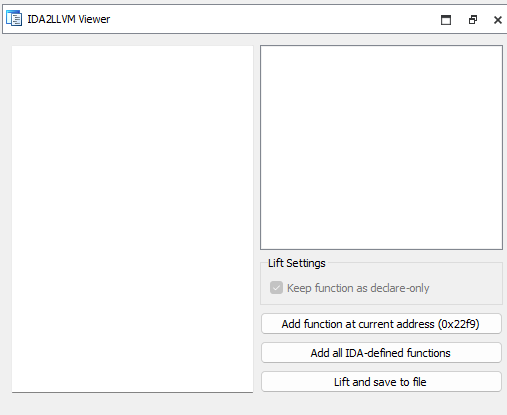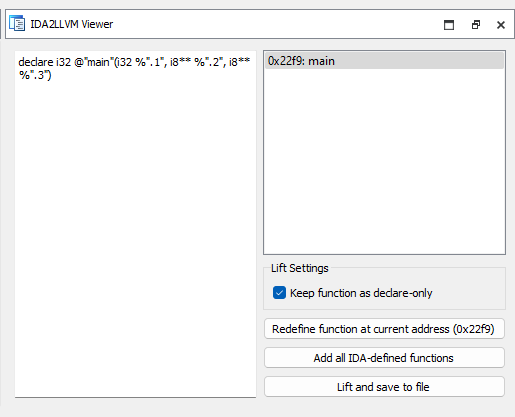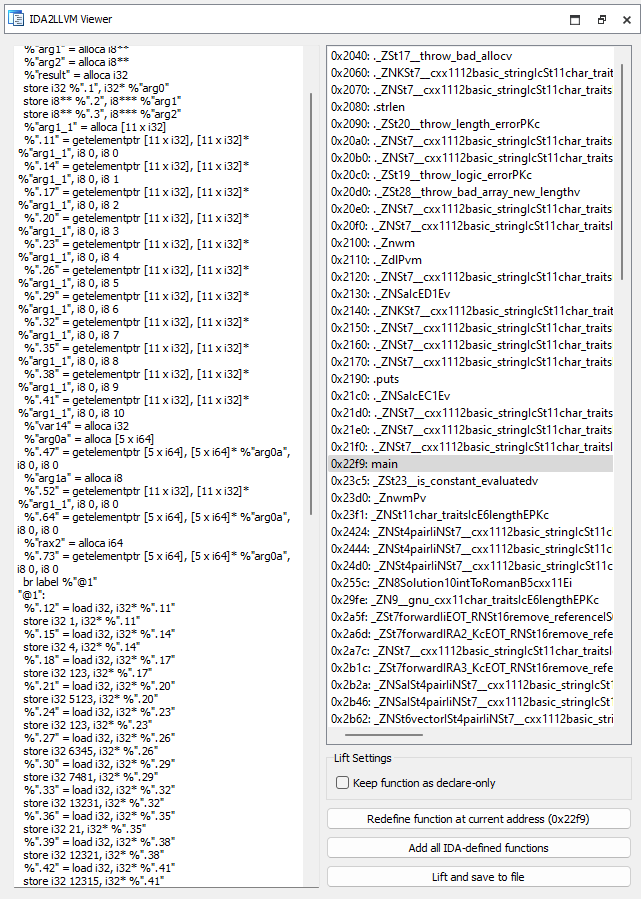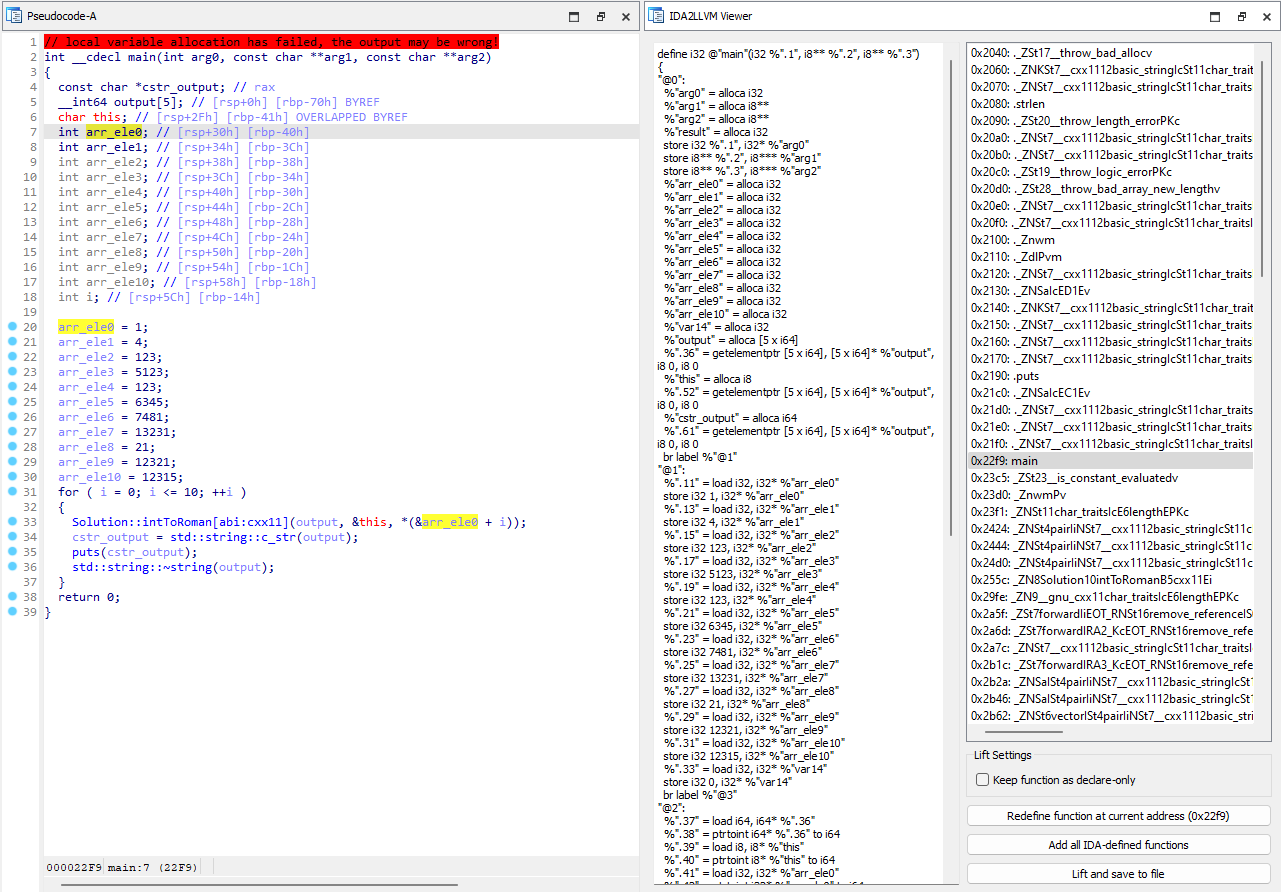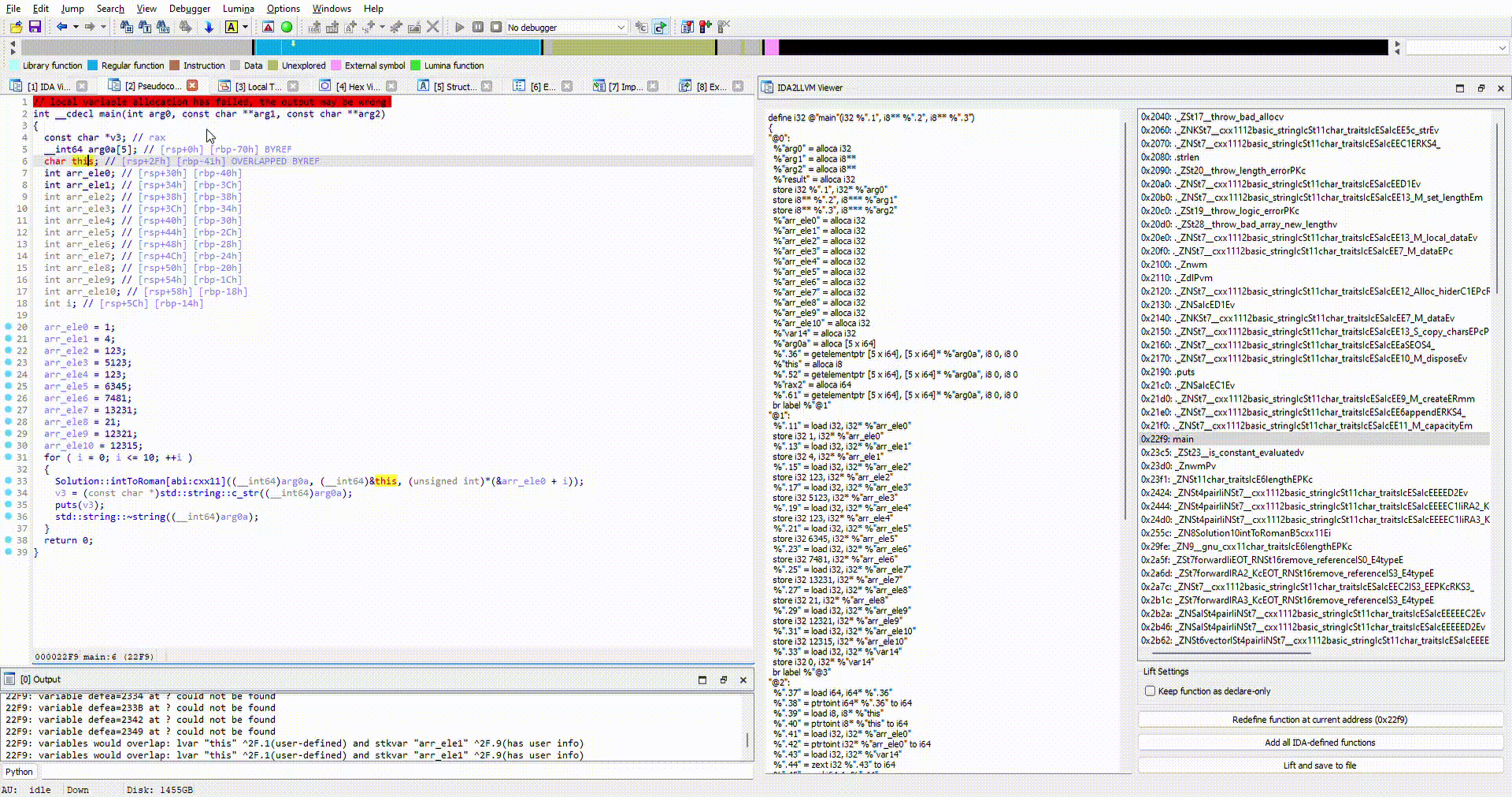Because I was curious, "can Hexrays decompilation be hijacked for LLVM lifting"?
- Lifts all IDA-decompilable binaries to LLVM bitcode, including executables and shared libraries for each platform.
- guarantees CFG preservation during lifting
- enable interactive lifting, for reverse-engineers most familiar with state-of-the-art IDA
| Name | Version |
|---|---|
| Python | 3.10* |
| llvmlite | 0.39.1* |
| headless-ida** | 0.5.2 |
| pytest** | 7.4.3 |
| IDA Pro | 7.7+ |
*llvmlite 0.39.1 did not have wheels for Python 3.11+
**only needed for unittests
IDA2LLVM will load for any architecture with a Hex-Rays decompiler present. Use the hot-key (Ctrl+Alt+L) or Edit/IDA2LLVM/Lifting Viewer to open the Lifting Viewer.
Lifting is performed at IDA's function level (assuming Microcode can be emitted). The viewer will always synchronize against the user's cursor in the disassembly window, indicating whether it can be lifted.
Functions are recursively added to children. If main calls the function f and main is defined, both main and f will be defined.
Having added a function, we can select it in the panel. Here we can:
- mark function as declare-only
- redefine the function
- lifting is performed on a per-demand basis.
- if there are changes to decompiler, we should redefine the function.
- delete function, with
Delkey
An example of a fully defined main function is as such:
More often than not, lifting will not work out of the box. A key feature of IDA2LLVM is interactive lifting.
Let's look tests/bin/romannumeral.out. Variable names have been renamed appropriately:
Pay attention to arr_eleX variables.
- Hexray's decompiler has displayed these as individual stack variables,
- however, the line
*(&arr_ele0 + i)betrays the fact that it is an array of integers{1, 4, 123, 5123...}of size 11.
Our lifted output will be faithful to Hexray's decompiler. Each integer variable will be an indepedent stack variable, and the line *(&arr_ele0 + i) will result in an memory access error.
We can fix this issue by appropriately defining the types in the decompiler, and redefining the function. All work has been done and saved in tests/idb/romannumeral.i64.
This works mostly as a convenience tool. We sacrifice the entire capability for a reverse engineer to interactively lift, hence accuracy is severely diminished.
This requires an IDA Pro Windows installation.
Our Dockerfile runs Windows IDA Pro in a Linux container, emulating it in Wine.
git clone https://github.com/loyaltypollution/ida2llvmInsert a tar zip of the entire IDA Pro folder
tar cvf ida.tar "$(dirname "$(which ida64)")"Insert the idb in the directory
docker build . -t bin2llvm
docker run --rm -it -v .\tests:/home/bin2llvm/tests bin2llvmSuppose the user lifted all functions in the idb. This potentially includes symbols from the C standard library, such as _start.
Naievely compiling from clang will likely result in link issues. Common issues include:
- duplicate symbols
- undefined symbols
In general, link issues are not our concern. Our lifter has already done its work and it's up to the user to fix linking issues (good luck).
Here are some tips to fix linking issues:
- instruct the linker to use the first symbol seen (
allow-multiple-definition)clang lifted.ll -c clang lifted.o -v -Wl,--allow-multiple-definition -o lifted.out
please raise an issue and let the author learn more about cpp linking
